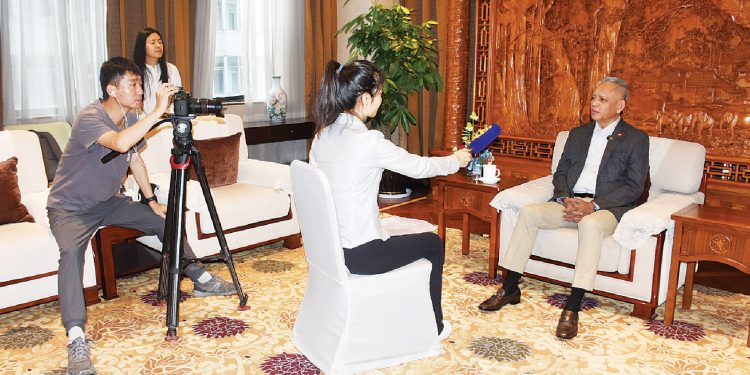Myanmar and China are pushing ahead with a border economic cooperation zone in northern Shan State, according to junta commerce minister Aung Naing Oo.
The minister revealed the regime’s plan to move ahead with the infrastructure project during an interview with CRI Myanmar during his visit to Kunming, China on August 18, according to junta media.
“The plan to establish an economic cooperation zone at the border of Myanmar’s Muse and China’s Ruili was delayed by the COVID-19 pandemic. So, we have formed a committee comprised of officials from various ministries … to work together with its Chinese counterpart to resume the project,” the minister was quoted as saying in the interview.
The border zone will be a free-trade zone for bilateral trade and investment, and socio-economic development, he said.
Together with two other planned economic cooperation zones on the Myanmar-China border, the Muse-Ruili zone is an important part of the China-Myanmar Economic Corridor (CMEC), which was proposed by Beijing in 2017.
The two other zones are at Kanpiketi Town in northern Myanmar’s Kachin State, which borders China’s Tengchong City, and Chinshwehaw Town in northern Shan State, which borders China’s Lincang City.
The Muse-Ruili zone will be the first of three to be built.
China is a major investor in Myanmar, and has placed importance on projects that will give it access to the Indian Ocean.
A crucial part of Beijing’s Belt and Road Initiative, the estimated 1,700-kilometer-long CMEC will connect Kunming, the capital of Yunnan Province in southwestern China, with Myanmar’s major economic hubs—linking first with Mandalay in central Myanmar, then forking east to Yangon and west to Rakhine State’s Kyaukphyu special economic zone.
During Chinese President Xi Jinping’s visit to Myanmar in 2020—the first by a Chinese president in 20 years—he and the now ousted National League for Democracy government signed a memorandum of understanding to adopt a framework for the Ruili-Muse border economic cooperation zone.
At the time, the Shan Nationalities League for Democracy—a powerful ethnic Shan political party—released a statement saying local residents were concerned land would be grabbed to make way for the cooperation zone.

















